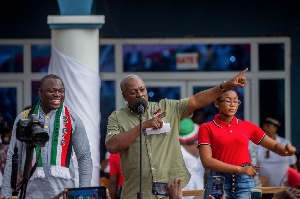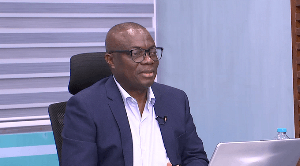Ghana became the first sub Saharan African country to halve extreme poverty, an indication that the country’s economic policies are having the desired impact. MARK DEAN of Your Business Watch writes.
Ghana became the first sub Saharan country to halve extreme poverty in relation to the UN Millennium Development Goals, according to a United Nations Development Program Report released last week. The country also made significant progress in reducing hunger, reducing the prevalence of HIV/AIDS and making education equally accessible to boys.
These latest milestones come on the heels of a negative narrative of the Ghanaian economy that seems to emphasise a view that the economy is in tatters. But such negative narratives, mainly from Opposition parties, are increasingly being dismissed by Ghanaians as the economy continues to show resilience and receive plaudits from both local and international agencies.
The country’s economy is clearly not in tatters as the UNDP report signals. Indeed, a few days before the UNDP Report, Ghana was rated as the country with the most favourable climate for business within the West African sub region. Some expected that for all the reports of economic gloom, the country’s investment climate would have been adjudged as highly unfriendly.
Generally, there have been challenging economic times globally and these are primarily due to reduction in commodity prices. But in the midst of the global challenges, Ghana has provided a haven for many investors seeking opportunities in sub-Saharan Africa. For instance, it is very instructive to note that despite its vast oil and gas resources, huge population and market, the Nigerian economy has not been able to match the performance of the Ghanaian economy. The Nigerians have struggled to introduce policies to address economic challenges unlike their Ghanaian counterparts and international community continues to express confidence in the Ghanaian economy; “Ghana’s economy is growing, Nigeria’s is shrinking. We have a very different relationship with Ghana. Ghana is more supportive of free trade and shares a long history of peaceful existence which Nigeria does not have,” US Ambassador to Ghana recently stated in an interview with an Accra based radio station when he dismissed suggestions of a changed relationship with US following the election of Donald Trump as the President of the United States of America.
The resilience of the Ghanaian economy has been a miracle to many people; beyond the global economic slump resulting from low commodity prices, the country has also faced a peculiar energy crisis for more than three years bringing many industries to their knees.
Yet, the country has managed modest growth rates, stabilized the cedi and embarked on massive infrastructural development projects in the past four years while surprisingly maintaining good fiscal discipline and managing inflation. The man behind the strategies and policies, Mr Seth Terkper, the country’s finance minister explains that part of the country economic success can be attributed to facing the challenges head on with a pragmatic approach and avoiding panic and reckless spending in an election year.
What the government did, he said, was to do a contract data base of all outstanding contracts in the country and then proceed to tackle pipeline contracts. He noted that the country, hitherto, did not have a good idea of the number of contracts so controlling expenditure had always been a challenge.
“Ghana never knew how many contracts were in the system and that is one of the biggest headaches Ghana has always had – overshooting the budget. So when we did that data base, we realised that we had nearly about 3,000 or so projects here and there from education to health to others”, he stated in a recent interview with Ghana’s state-owned Daily Graphic.
Another response by the government was to seek IMF intervention but develop home grown measures in the country’s engagement with the IMF. Indeed, the news of the IMF engagement had received mixed response from Ghanaians. Some criticised the government citing the restrictive conditions that were likely to impose hardships. But others hailed it as a master stroke considering the nature of the engagement. In the end, many Ghanaians agree that it was a good move from the government.
“Going to the IMF was inevitable,” the finance minister explains. He notes that while there were obvious conditions related to the IMF engagement, there have been some very worthy benefits and cites the enhanced stabilization of the cedi as one of the benefits of the IMF intervention.
With a strategy that seeks to consolidate the country energy base, the government is optimistic about the future. It has turned to the World Bank for a partial risk guarantee to develop its own gas resource to help generate more power. That will also help provide vital support to the private sector and help boost industrial growth.
The future obviously looks promising and with the solid foundations that have been put in place, the Ghana is no doubt poised for more prosperous economic times.
Opinions of Thursday, 10 November 2016
Columnist: Mark Dean















